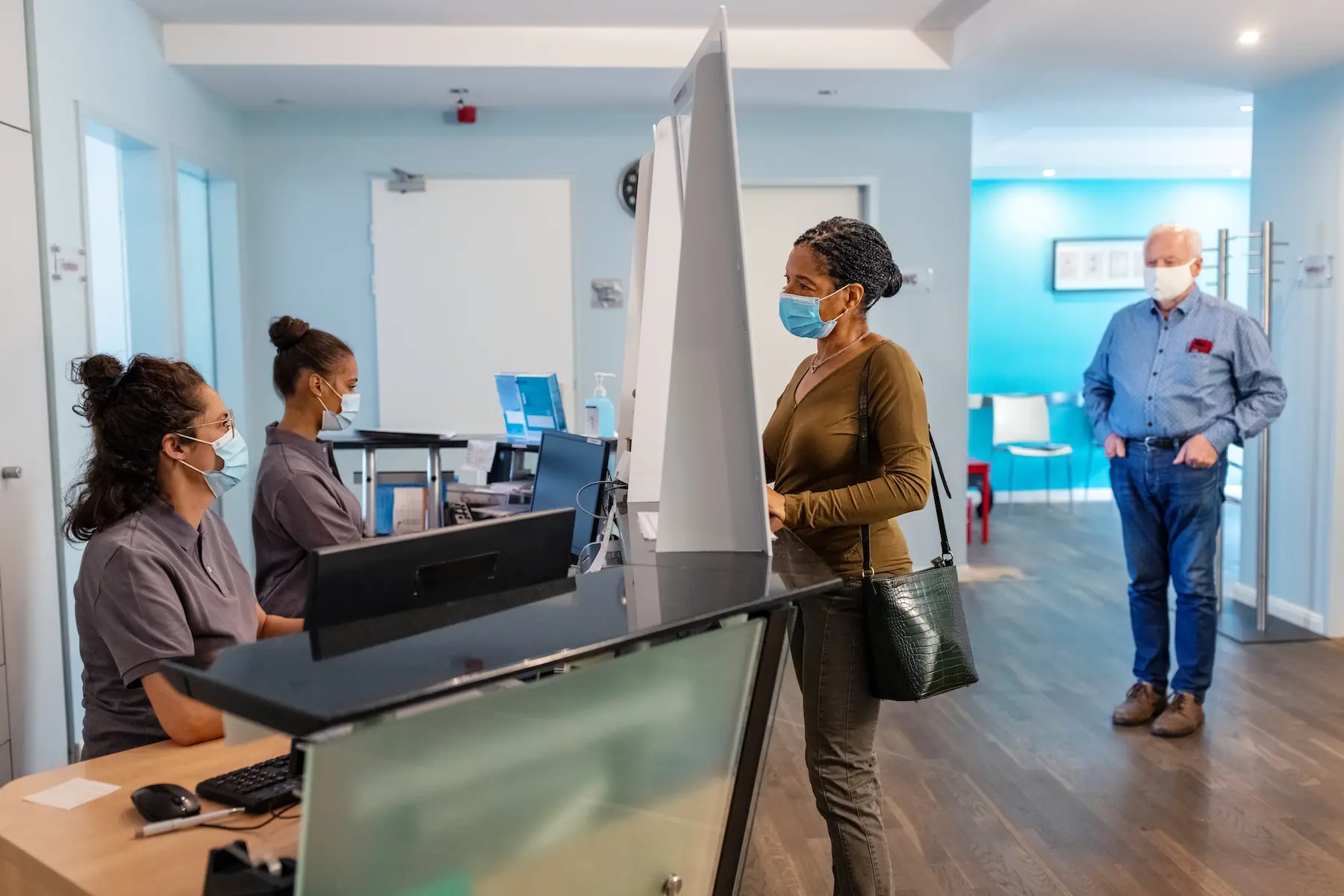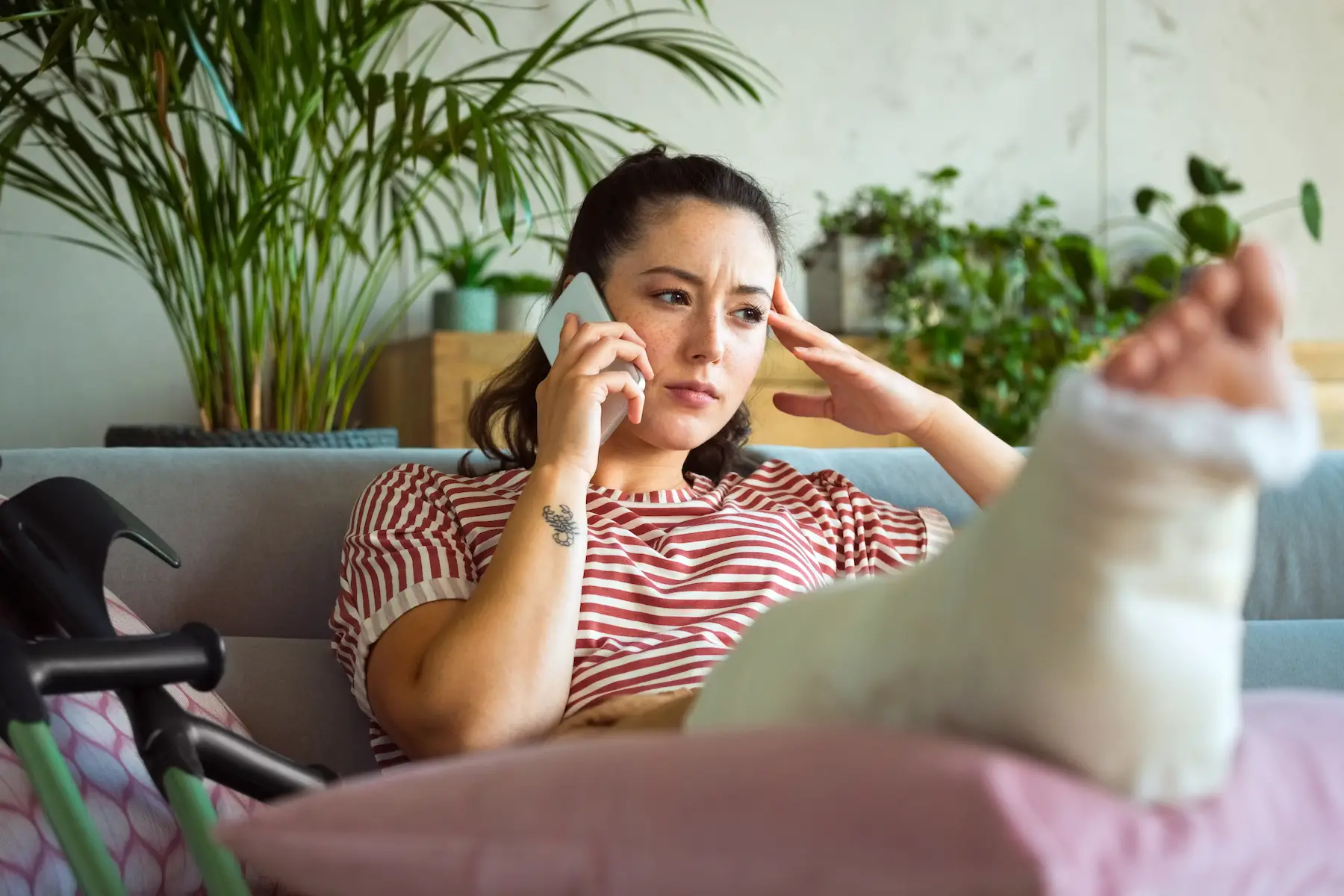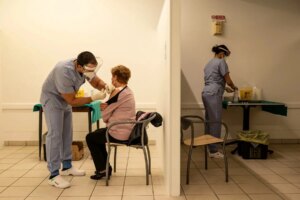As anyone with bad knees and memory issues knows, life doesn’t always allow you to age gracefully. Fortunately, Italy’s healthcare system is well-equipped to handle most medical ailments you might face in your golden years.
From the basic coverage provided by public healthcare to the supplementary options available through private insurers, explore the key aspects of elderly care in Italy in the following sections:
- Overview of elderly care in Italy
- Health insurance for pensioners in Italy
- Specialist healthcare practices for seniors in Italy
- Mental health and neurodegenerative diseases
- How seniors can manage chronic diseases in Italy
- Rehabilitation and physical therapy in Italy
- Social and long-term care for the elderly in Italy
- Does Italy have telehealth or technology-enabled aging?
- Alternative and complementary care
- Useful Resources
Cigna Global
Are you 60+ and looking for private international health insurance? Speak to the healthcare professionals at Cigna Global today and find a policy that’s right for you. They have a global network of doctors, specialists, therapists, and more with tailor-made coverage for seniors. Before starting a new chapter of your life, get peace of mind with Cigna Global.
Overview of elderly care in Italy
Italy, like many other countries, is grappling with an increasingly aging population. In 2024, 24.3% of the population is seniors over 65, and this share is projected to surge to 34% by 2050.
Indeed, at 83.0 years, the country’s life expectancy is among the highest in the European Union (EU). Italian men tend to have shorter lifespans than women; in 2022, women’s life expectancy was 85 years, over four years more than that of men (80.9 years).

Italian adults typically remain in good health until after 75. Around 47.8% of pensioners aged 75 and over are either multi-chronic (suffering from three or more chronic diseases) or have severe limitations in their daily lives (2021). The most widespread chronic diseases are:
- Hypertension and osteoarticular problems (affecting 50% of seniors over 75)
- Osteoporosis or bone disease (30.5%)
- Diabetes (20.8%)
- Diseases affecting the nervous system (15.9%)
Fortunately, Italy has a well-developed elderly care system to support its rapidly aging population. For example, public health insurance provides essential services like primary and specialist care, pharmaceuticals, home care, and hospice care.
As the government promotes community-based solutions and home care, private facilities like nursing homes and social centers are also integral parts of the system.
Health insurance for pensioners in Italy
The Italian healthcare system consists of the public National Health Service (Servizio Sanitario Nazionale – SSN), funded through tax revenue and co-payments, and a smaller network of private insurance providers.
Public health insurance
The SSN is only mandatory for working residents. As such, foreign pensioners are not required to register when they relocate to Italy. However, you can opt in voluntarily by paying a fixed annual fee.

One of the benefits of the public system is that you may be exempt from making additional co-payments (so-called health tickets, ticket sanitari). For example, the following groups can access public healthcare services for free:
- Seniors over 65, if their total household income is less than €36,152 per year
- Pensioners over 60, if their household income is less than €8,263.31 per year or €11,362.05 if there is a dependent spouse
- The income threshold is raised by €516.46 for each dependent child
- Social security recipients (e.g., social pensioners (pensione sociale)) and their dependent family members
- Patients with certain chronic, disabling, or rare diseases and illnesses
- Other patients of social interest (e.g., organ donors)
Private health insurance
However, it’s worth noting that the SSN is struggling to meet the needs of the growing number of seniors. The public sector has a shortage of nurses and increasingly long waiting lists that prevent it from delivering proper care.
As such, some older residents prefer to take out private medical insurance. More about Italian healthcare coverage can be found in our article on health insurance in Italy.
International private health insurance for seniors
International providers, such as Cigna Global, offer health insurance plans specifically tailored to expats aged 60 and over living in Italy. These policies typically cover common illnesses and emergencies, and provide optional coverage for dental care, vision, and other specialized needs.

Unlike other options, international plans for seniors often have no upper age limits and may include coverage for certain long-term and pre-existing conditions. For expats who prefer quicker treatment, shorter waiting times, and access to English-speaking doctors, exploring international private health insurance could be a practical choice.
Specialist healthcare practices for seniors in Italy
Italy has several hospitals and healthcare clinics that provide specialist elderly care services. These include:
- Chronic disease management (e.g., cardiology services and diabetes care)
- Geriatric care (e.g., physical, cognitive, and social evaluations to develop individualized care plans)
- Home care services (e.g., professional nurses who assist with daily tasks)
- Inpatient and home-based palliative and hospice care (e.g., pain management for seriously ill and terminal patients)
- Mental health services (e.g., psychiatrists who help manage depression and anxiety)
- Neurological practices (e.g., help with dementia-related conditions and post-stroke recovery therapy)
- Orthopedic services (e.g., hip and knee replacements)
- Preventive practices (e.g., vaccinations and screening programs)
- Rehabilitation services (e.g., post-surgery and speech therapy)
- Social services (e.g., support for social integration)
When seeing a public healthcare specialist, you usually require a referral from your family doctor or GP. If you have private insurance, however, you can schedule an appointment with the healthcare professional directly.
Are vaccines mandatory for older people?
Adult vaccinations are not compulsory in Italy. However, doctors strongly encourage anyone over 60 to get vaccinated against:
- Herpes zoster (i.e., shingles)
- Pneumococcal disease
- Common flu

General doctors typically administer vaccines for seniors, but the nursing staff at local hospitals or medical care facilities can do it as well. On very rare occasions, the pharmacy may also provide certain vaccinations.
Because vaccines for pensioners are recommended, you are likely required to pay a small fee.
Hearing, vision, and dental care
It is common for older people to experience hearing loss, vision impairment, and dental defects. While you can, of course, ignore the issue, Italy also has several specialists who are eager to help.
If you are struggling with your hearing, you can get a referral for a hearing care specialist (otorino). The specialist will examine your ears and advise you on the different options available. The SSN only covers the cost (partially or in total) of hearing aids (apparecchi acustici) when your hearing loss:
- Is above 65 dB
- Reaches 34% disability
- Developed after an accident at work
- Developed in a war or during Italian military service
If you are ineligible, you may want to take out private health insurance to cover the (often steep) costs.
Pensioners experiencing vision problems can visit an optician (ottico) or ophthalmologist (oculista). The latter requires a referral from your general doctor. When the ophthalmologist prescribes a vision aid due to a disability, the SSN may cover the costs. With vision problems, however, it is more likely you have to pay for it yourself. Luckily, medical care, including optician appointments and glasses (occhiali), can be offset against your tax bill.
Similarly, only a small portion of the public health system includes dental services. Typically, only low-income seniors can see a dentist and get dentures (dentiera) for free. Those with a higher income will need to go through a private dentist and pay the bill themselves.
Cigna Global
Are you 60+ and looking for private international health insurance? Speak to the healthcare professionals at Cigna Global today and find a policy that’s right for you. They have a global network of doctors, specialists, therapists, and more with tailor-made coverage for seniors. Before starting a new chapter of your life, get peace of mind with Cigna Global.
Circulatory diseases (heart and arteries)
Circulatory diseases (e.g., heart attack, mitral valve issues, high cholesterol, and stroke) are the leading cause of death in Italy. In fact, in 2020, they were responsible for 30.5% of fatalities.
As a result, there’ve been several public health campaigns and preventive programs to raise awareness about circulatory diseases, their risks, and how to prevent them.
Routine check-ups with your general doctor could help diagnose the disease early. These appointments include regular blood pressure measurements, blood tests for cholesterol and glucose levels, and physical examinations.
Cancer and cancer screenings in Italy
The second most deadly disease in Italy is cancer (tumore), with 22.5% of mortalities in 2020. Primary causes of cancer-related deaths are lung cancer (tumore ai polmoni) and colorectal cancer (tumore del colon-retto).

Among Italian men, the most common form of cancer is prostate cancer (tumore alla prostata; 25% in 2022). For women, it’s breast cancer (tumore della mammella; 30% in 2022). The second and third most frequent cancers for both genders are colorectal and lung cancers.
According to the Italian Ministry of Health (Ministero della Salute – MdS), about 40% of new cancer cases are potentially preventable due to modifiable risk factors. As such, it has named cancer prevention one of its main priorities.
The National Oncology Plan 2023-2027 (in Italian) outlines Italy’s strategy against cancer. It includes promoting healthy lifestyles, free age-related cancer screenings, and ramping up efforts to identify patients at risk of familial cancers.
Age-related cancer screenings
Italy offers free annual preventive care exams, such as mammograms, pap tests, and prostate exams. The country also has two national screening programs for seniors over 65:
- Breast cancer screening (screening per il cancro del seno) – women aged 50–69 are invited to have a breast cancer screening every two years
- Colorectal cancer screening (screening per il cancro del colon retto) – people aged 50–69 are invited to undergo colorectal cancer screening every two years
Detecting cancer early is essential for effective treatment. If you experience any unusual symptoms, you should contact your doctor immediately.
You can find more about cancer prevention, treatment, and research in Italy at the National Screening Observatory (Osservatorio nazionale screening). The European Commission also provides information about the EU’s strategy against cancer.
Mental health and neurodegenerative diseases
Older age may come with a deterioration of your mental health. Depression and anxiety are the most common mental disorders in Italy.

Alarmingly, reported depression rates tend to increase as people get older. For example, in 2022:
- 8.3% of seniors aged 65–74 experienced symptoms of depression
- 10.7% of pensioners aged 75–84
- 13.6% of adults aged 85+
The risk of suicide also increases with age. If you or someone you know needs mental help, you can call the crisis support line at 02 99777 (operators speak Italian).
For longer-term care, you can contact your general doctor, who can refer you to a mental health specialist. However, you should be aware that waiting times are long, and sessions may be in Italian. As such, expat seniors may want to see a private healthcare professional.
Learn more about mental healthcare treatment and prevention in our article on mental healthcare in Italy.
How seniors can manage chronic diseases in Italy
The silent generation is known for toughing it out. However, chronic diseases and long-term conditions can drastically affect your quality of life. Fortunately, Italy’s elderly care system is well-equipped to help seniors manage age-related conditions, including arthritis (artrite) and diabetes (diabete).
Around 15% of Italians are afflicted by osteoarthritis and arthritis. This disease is characterized by chronic inflammation of the joints, causing symptoms such as joint pain lasting longer than six weeks and lasting 30 minutes at a time. Arthritis is more prevalent in women than in men.

As usual, you should contact your doctor for a diagnosis. They will examine your joints and order blood and radiology tests to diagnose your condition. Treatment usually involves medication to prevent pain and inflammation, surgery, and rehabilitation. It may also include physiotherapy, occupational therapy, and equipment to aid everyday life.
A diabetes diagnosis also starts with bloodwork and other tests by the family doctor. For example, you may be given equipment to monitor your blood sugar. After that, the doctor may begin by prescribing a balanced diet and regular physical activity. If this treatment proves ineffective, you may be prescribed medication or insulin.
In 2021, roughly 3.8 million Italians had diabetes, with most of them aged 75 years or older.
Rehabilitation and physical therapy in Italy
Seniors who need assistance with mobility, strength, balance, and coordination can visit a physiotherapist (fisioterapista). Physiotherapy can be beneficial for conditions such as arthritis, osteoporosis, and Parkinson’s.
Public health insurance covers most of the cost with a referral, but if you want to contact the physiotherapist directly, you’ll need to pay the full amount or have it covered by your private insurance.
Rehabilitation after a fall or surgery usually takes place in a rehabilitation center or hospital.
Social and long-term care for the elderly in Italy
Italy emphasizes community-based solutions and home care for the elderly (i.e., “aging in place”). More often than not, younger generations care for their senior (grand)parents in their own homes. Southern Italy, in particular, sees in-patient nursing care as a last resort.
That said, the country has an increasing number of long-term healthcare services for seniors who cannot live independently. These include:
- Home care through healthcare professionals (badante)
- Residential or retirement homes (casa albergo, communità alloggio, or residenza assistenziale, depending on the location)
- Nursing homes (casa di risposo)
- Community-based programs to reduce isolation and promote well-being
- Hospices for palliative care

While public nursing homes and assisted living facilities do exist in Italy, long-term care is underfunded. As such, you may find shorter waiting lists and better quality facilities in the private healthcare sector. However, the prices of private residential and nursing homes are very steep, with the median cost being around €1,620 per month (2022).
The Catholic church and various orders of nuns also run nursing homes in Italy and may provide financial assistance for low-income pensioners.
Is there financial support for caregivers in Italy?
Italy offers several allowances and benefits to caregivers who care for elderly family members or individuals with disabilities, including:
- Carer’s allowance (indennità di accompagnamento) – financial support for seniors who are not self-sufficient and require constant assistance. The allowance is granted regardless of your income. In 2024, the benefit is €531.76 per year. It’s important to note that the payment of the allowance is suspended when the beneficiary is hospitalized for more than 29 days.
- Home Care Support (Assistenza Domiciliare Integrata) – this program provides support for home care services, including home nursing, physical therapy, and personal care assistance. Services are coordinated by local health authorities and can vary by region and the specific needs of the pensioner.
- Tax deductions – caregivers may benefit from tax deductions for expenses related to the care of dependent family members. This includes deductions for medical expenses, home adaptations, and other costs incurred in providing care.
- Paid leave for caregivers – eligible carers can take up to three days of paid leave per month. In some cases, they may take extended leave of up to two years.
Various community-based organizations and volunteer groups provide additional support and resources for caregivers, including counseling, respite care services, and training programs. You can consult with your Regional Health Authority (Aziende Sanitarie Locali – ASL) to see what is available in your area.
Does Italy have telehealth or technology-enabled aging?
Telemedication and other technology-enabled health services have become more readily available since the COVID-19 pandemic. Among online healthcare options are televisits, teleconsultations, telemedicine, and remote patient monitoring. When implemented correctly, these technologies can offer greater access to healthcare, relieve the burden on formal care systems, and enhance the patient’s quality of life.

Despite their potential value, however, both Italian doctors and patients seem adverse to the use of telehealth services. A 2022 survey revealed that only remote patient monitoring is practiced widely. Teleconsultations, on the other hand, are used primarily for intercollegiate consultations, and televisits with patients happen rarely.
The study suggests that the disuse is due to a lack of professional telemedicine systems and limited training of healthcare professionals. However, it does not take the patients into account.
Indeed, a second study from 2023 found that a large section of the population ignores the available telehealth services. Patients prefer in-person visits and seniors, in particular, have a negative attitude toward online healthcare.
The writers of this study blame telehealth’s unpopularity on a lack of awareness of its existence, computer literacy, and knowledge of its effectiveness and safety.
Healthcare apps for seniors in Italy
Seniors who are not averse to telehealth can manage their health effectively using various free and paid apps. Many of these are user-friendly and have simple interfaces suitable for elderly care in Italy.
Examples include:
- CareZone (EN) – track your medication and health info
- Il tuo infermiere (IT) – find a certified home nurse
- La tua salute (IT) – information on how to access the SSN
- MedinAction (EN) – find an English-speaking doctor and schedule online consultations
- MioDottore (IT) – book medical appointments and online consultations with general doctors and specialists
- Mia Salute (IT) – manage your health records, schedule medical appointments, and receive reminders for medication and check-ups
- Pagine Mediche (IT) – book medical appointments, access telemedicine services, and manage your medical records
Alternative and complementary care
Alternative and complementary healthcare services (servizi sanitari alternativi e complementari) are increasingly more popular in Italy. Some hospitals and healthcare providers even recommend these holistic services as part of a comprehensive treatment plan.

Common alternative and complementary elderly care services in Italy include:
- Acupuncture (agopuntura. Note: practitioners are usually required to have formal training and certification)
- Aromatherapy (aromaterapia)
- Herbal medicine (fitoterapia)
- Homeopathy (omeopatia)
- Chiropractic care (chiropratica. Note: chiropractors undergo extensive training and must be licensed)
- Osteopathy (osteopatia. Note: practitioners are regulated and must complete specific training programs)
- Naturopathy (naturopatia)
- Massage therapy (terapia del massaggio)
- Yoga and meditation (yoga e meditazione)
Depending on your location and desired treatments, you can access these natural health services at hospitals, specialized health clinics, wellness centers, pharmacies, or health food stores.
Alternative therapies are generally not covered by the public healthcare system. However, some regions in Italy may offer provisions to cover certain holistic treatments. For example, Tuscany (Toscana) is known to provide coverage if the treatment is integrated into a care plan provided by a public healthcare professional.
You can check with your local ASL to see if or what complementary treatments they cover. Alternatively, you can take out private health insurance to cover holistic medicines.
Cigna Global
Are you 60+ and looking for private international health insurance? Speak to the healthcare professionals at Cigna Global today and find a policy that’s right for you. They have a global network of doctors, specialists, therapists, and more with tailor-made coverage for seniors. Before starting a new chapter of your life, get peace of mind with Cigna Global.
Useful Resources
- Ministry of Health (Ministero della Salute) – official website of the government ministry responsible for healthcare in Italy
- National Health Service – official website of the public health service
- L’Agenzia Entrate – governmental website with information on how to apply for an Italian Health Card








